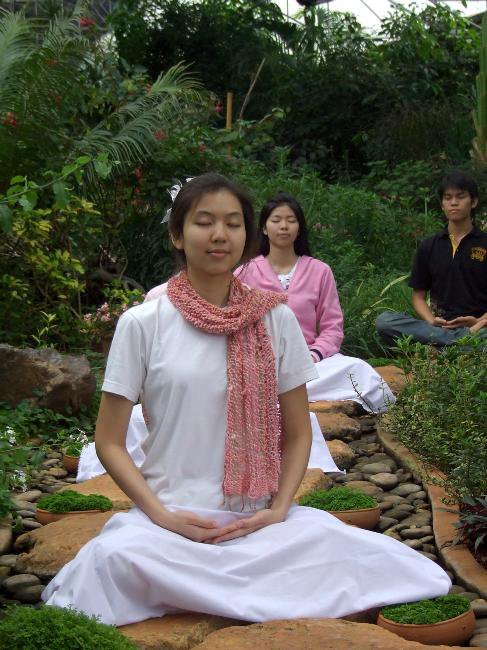Blessing Nineteen:
Abstaining from Unwholesomeness
Abstaining from Unwholesomeness

A. INTRODUCTION
A.1 Introduction to the Nineteenth Blessing
The mind is fickle and easily influenced. A person who is virtuous today can easily relapse into bad behaviour tomorrow if his mind has not been cultivated to the point of steadfastness. When you realize the weakness of the mind it immediately implies that we have work to do in the constant upgrading of the mind towards something better. If you really want to be sure that you will never do unwholesome deeds again, then at the least you have to attain enlightenment at the level of ‘stream-enterer’ [sotāpana]. For those who still fall short of this initial degree of enlightenment — although you can always praise and encourage their good intentions — you can never entirely trust the working of the remaining defilements in their mind.Cultivating virtue can be compared to climbing a tree. Trees have no branches at the lowest level. The lowest branches are several meters above the ground. Therefore if you want to start climbing a tree you have to shinny up the trunk before you can sit to rest on the lowest branch. If you don’t make it to the first branch, whenever you get tired you will slide back down to the bottom of the tree again. Only if you are on the first branch can you be sure you will not backslide and can you be sure that you have a chance of eating the fruit from the tree. In the same way, in the pursuit of virtue, no matter how many years you have been cultivating good deeds, if you have still not managed to attain the body of enlightenment (Dhammakāya) inside yourself, you cannot be assured that one day, if you are short of encouragement you will not fall back to your old unwholesome ways.
For most people in the world, unfortunately it is much easier to do unwholesome (wicked) things rather than wholesome (good) ones. To do unwholesome deeds is like going with the flow — but in fact it is the tide of defilements in the mind. Instead of being ourselves, we become like a puppet to the defilements or demons [māra] in our minds — in the beginning it might seem easy, but in the long-term suffering and regret is the path to which it leads. By comparison to do good deeds is like traveling against the flow — it needs much more patience and precision to go against the tide of temptation and defilement in one’s mind. However, although it may seem more difficult in the beginning, in the long term, it has true happiness as its destination.
Thus to gain the steadfastness of mind and resist the temptation of slipping into the convenience of unwholesome ways, we have to study Blessing Nineteen concerning the avoidance of all unwholesomeness. It is the first step in adjusting our quality of mind. Adjustments to quality of mind will continue in a way that becomes increasingly refined all the way to Blessing Thirty-Eight.





